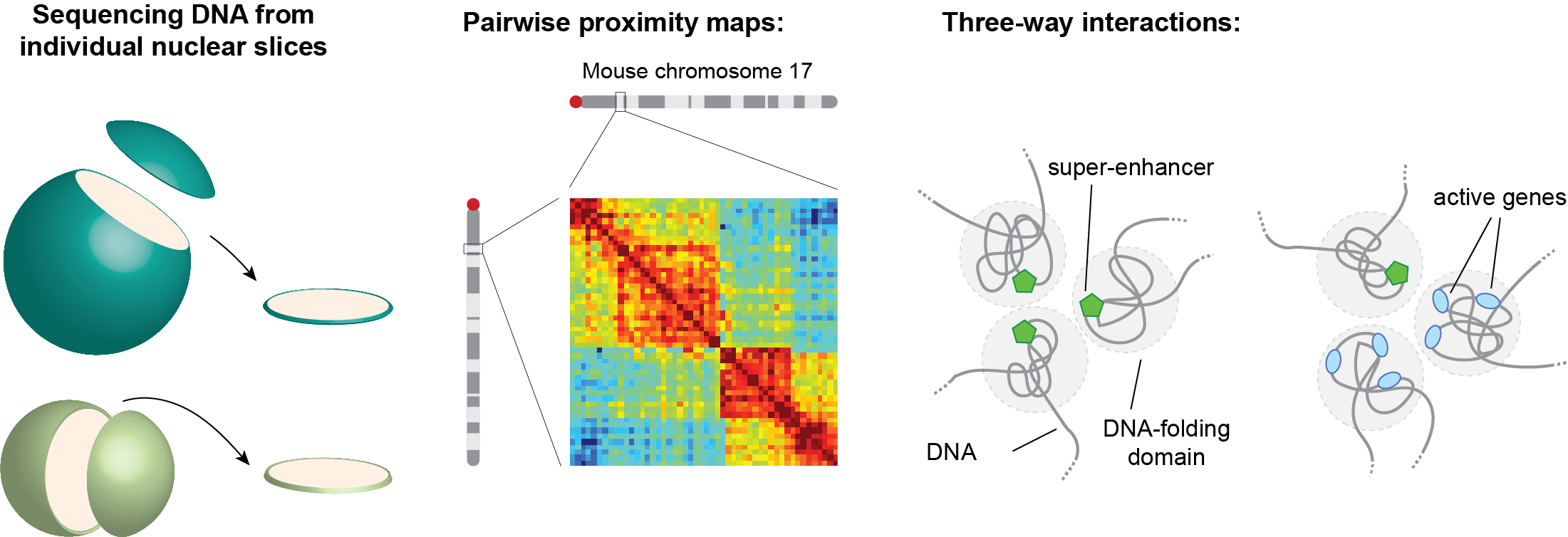Beagrie Group: Chromatin and Disease
We use cutting-edge genomics approaches to study genetic diseases of chromatin function.
Beagrie Lab: Chromatin and Disease
More than 100 chromatin proteins have been identified as causative genes in human genetic disease. Most of these genes are broadly expressed and many have fundamental roles in transcriptional regulation, yet their disruption causes tissue-specific effects. We do not understand the molecular basis of this tissue-specificity, as it has been challenging to identify the specific cell types affected and to study the consequences of these mutations in the proper tissue context.
The Beagrie lab studies genetic disorders of chromatin function, focussing on heart and brain development because these tissues are very commonly affected in chromatin disorders. We use single-cell RNA-seq and spatial transcriptomics to identify affected cell types and the genes dysregulated in those cells. We investigate the molecular mechanisms underlying the dysregulation of these genes by assessing how chromatin organisation is affected, for example by looking for differences in the distribution of histone variants, histone modifications or nucleosome-free regions. We use Genome Architecture Mapping to measure chromatin folding, and cutting-edge computational biology techniques to identify common features of genes that are particularly sensitive to chromatin disruption.
Genome Architecture Mapping
Genome Architecture Mapping (GAM) is a technology for measuring the complex folding of DNA in the 3D space of the nucleus that Rob developed during his time with Prof. Ana Pombo. GAM works by isolating hundreds of thin slices from individual nuclei and sequencing their DNA content. Genomic regions which are close in the nucleus will be found together in the same thin nuclear slice more often than regions which are distant. Importantly, this approach is readily applicable to fixed tissue, and could therefore be an important tool for studying human disease.

Open positions
We are always open to enquiries from interested postdocs or students - please email Rob in the first instance.
Twitter: @RobBeagrie




